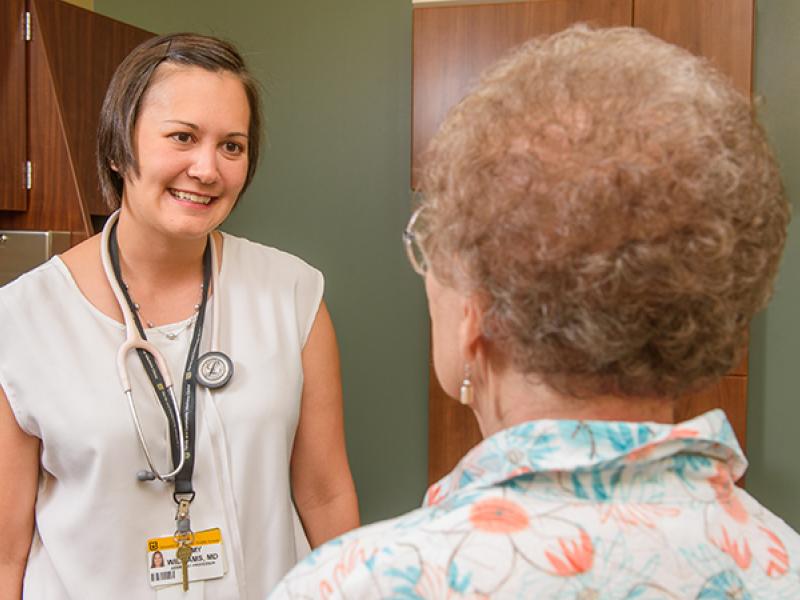The purpose of residency training in the department of Dermatology is to develop the knowledge, skills, habits and experience of a competent dermatologist.
PGY1
Internal medicine, general surgery, family practice, obstetrics & gynecology, pediatrics, or emergency medicine is a prerequisite for dermatology residency. Here at MU, we have a Preliminary Internal Medicine program, allowing residents to complete their required internship, expand their knowledge of medicine, work with excellent IM faculty, and even start their dermatology continuity clinic from their first month of residency.
PGY2 through PGY4
The purpose of residency training in the department of dermatology is to develop the knowledge, skills, habits and experience of a competent dermatologist. To achieve that goal, residents participate in the provision of medical care and education as outlined.
In PGY-2 year, residents are primarily immersed in clinical dermatology, working in general dermatology (specialty clinics), pediatric dermatology at our Children’s Hospital, dermatology oncology at our comprehensive cancer center, and with veterans at our VA Dermatology clinic. Additionally, PGY-2 residents expand upon their surgical skills with resident surgery clinics at the VA, excision clinics with our Mohs surgeon, and dedicated procedure time in their weekly continuity clinics.
In PGY-3 and PGY-4 years, residents continue to rotate in clinical dermatology as above, but residents expand their experience to include inpatient consultation, pathology, and Mohs surgery rotations. Throughout all three years, residents have a weekly continuity clinic, allowing residents the opportunity to manage their own patients and expand practice management skills.
Courses and Conferences
Residents are given a stipend over the three-year course of residency to cover costs associated with attending conferences. Residents are encouraged to use conference days and funds to explore their interests and supplement their education. Residents often attend the AAD Annual Meeting, Missouri Dermatological Society meeting and a variety of subspecialty meetings.





